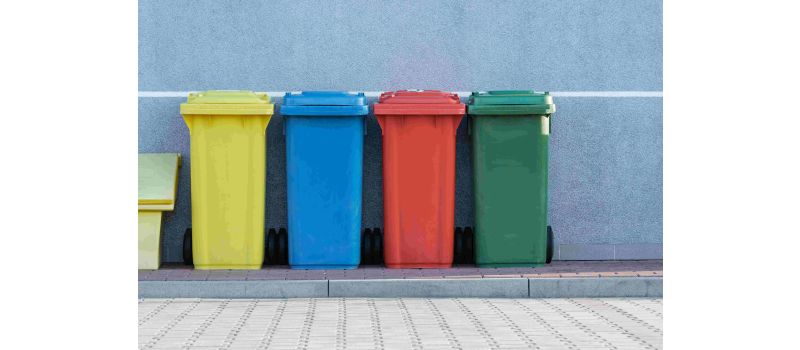As the UK strives for a more sustainable future, significant changes are being introduced to how businesses handle waste and recycling.
The "Simpler Recycling" legislation, which will take effect on 31st March 2025, aims to standardise recycling practices for businesses across England.
With the new rules starting on March 31st, businesses must act now to ensure they comply with the latest recycling legislation or result in penalties and increased waste management costs.
This guide will explain the new recycling rules, how businesses will be affected, and what steps they need to take to prepare.
What are the new rules for recycling?
The upcoming Simpler Recycling legislation is designed to make recycling more manageable and consistent nationwide.
Currently, different councils have varying rules for waste collection, which leads to confusion and inefficiencies. The new law will standardise recycling by ensuring households and businesses across England recycle the same materials.
Under the new recycling laws in the UK, businesses will be required to separate mixed recycling into the following categories, as households already do:
- Glass
- Metal
- Plastic
- Paper and cardboard
- General waste
- Food waste
This new legislation aims to increase recycling rates, reduce landfill waste, and lower carbon emissions.
Businesses that fail to comply with the new recycling legislation will risk penalties and operational disruptions.
What does Simpler Recycling mean for businesses?
For businesses, the Simpler Recycling legislation means adapting to a more structured and systematic approach to waste management.
Whether you run a small office or a large manufacturing plant, all businesses must ensure their waste is correctly sorted into the designated categories and placed in the correct recycling bins. Whether this waste is recycled in indoor waste bins or outdoor recycling bins, businesses will risk consequences if it isn’t done effectively.
The key impacts of the new recycling laws on UK businesses include:
- Mandatory waste separation: Businesses must sort waste into the required six categories before collection.
- Additional bins and storage solutions: Companies will likely need to invest in new waste and recycling bins to comply with the legislation. Dedicated recycling stations are recommended to facilitate this.
- Increased waste collection costs: Some businesses may see changes in waste collection charges based on the volume and type of waste they produce.
- Increased employee training and awareness: Staff will need to be educated on the new recycling procedures, the correct bins, and how to recycle each type of material.
How can businesses prepare for the new legislation?
Preparing for the new recycling legislation requires businesses to take several proactive steps:
1. Conduct a waste audit
Businesses should assess current waste management systems already in place and identify the types and volumes of waste currently being disposed of. Doing so will allow you to determine what kind of changes are required.
2. Invest in proper waste bins and recycling stations
Ensure your business has separate bins for mixed recycling, general waste, and food waste. Each bin needs to be clearly labelled to avoid any cross-contamination.
3. Train employees in advance
Employees will need to be effectively educated on the new recycling laws and the importance of correctly segregating different types of waste. Consider holding workshops on the new legislation and providing clear guidelines through posters and internal communication.
4. Continue monitoring waste management practices
After implementing any changes, track your business’ waste management practices to determine how well it works. Periodic reviews are essential to ensure compliance and identify any areas for improvement.
What are the consequences if businesses don’t make changes and adhere to the legislation?
Non-compliance with the new recycling legislation can have serious repercussions for businesses, including:
- Fines and penalties: Companies that fail to separate waste properly could face financial penalties.
- Increased waste disposal costs: Non-compliant businesses may be charged higher fees for waste collection.
- Reputational damage: With growing public awareness around sustainability, businesses that fail to comply may be criticised by customers, stakeholders, and the general public. They may be seen more negatively.
- Operational disruptions: Incorrectly sorted waste may lead to collection refusals, which could cause delays, potential hygiene concerns and other business disruptions.
With the new recycling laws in the UK coming into effect on 31st March, businesses must act now to ensure compliance.
By understanding what the new rules for recycling are and implementing all necessary changes, businesses can avoid penalties and disruption, helping to do their part in contributing to a greener future.
Investing in proper waste management solutions and working towards a culture of sustainability will ensure your business complies with the Simpler Recycling legislation and enhance your company’s environmental responsibility.
Ensure your business has the correct waste and recycling bins to meet the new requirements and ensure a smooth transition to compliance.
